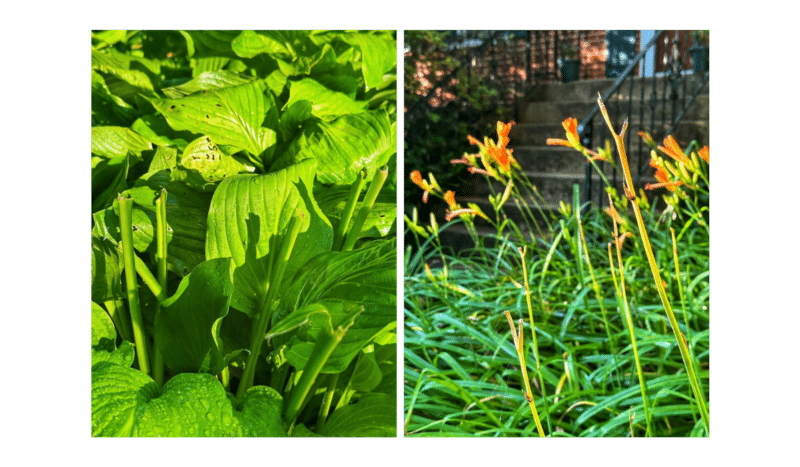I’m not a romantic.
There is too much that’s wrong in the world, and given my days and years I have listened to too much heartache and seen too much sorrow. Not only that which is the most profoundly personal, of disappointments and griefs which are the heart of our deepest hearts, but that which is very political too, the push-come-to-shove that is our life together in the public square within these United States and all over the world. When we learn to pay attention, in the way that Simone Weil wrote—having eyes that see what is, and what is not—then we necessarily see ourselves implicated in the glory and ruin of where heaven touches earth.
This week Meg and I spent an evening with sons of Adam and daughters of Eve in Washington, D.C. for the simple yet heart-searching reason that we were drawn to lament together for the terror and tears in the land we call Israel. Anyone watching the world for the last eight months since the horror of Hamas’ brutality, must feel the weight of the wounded world. But if our vision is born of something more holy and true, then we also see and hear the pain of the Palestinian people, which has never been one-and-the-same with Hamas.
Paying attention requires that we wrestle with complexity.
My friend and neighbor Todd Deatherage led our evening of lament. After his growing up years in the mountains of Arkansas, he came to Washington, D.C. to serve as a chief-of-staff on Capitol Hill, working in both the House and Senate before being asked to become the chief-of-staff for Secretary of State Condoleezza Rice. In those years at the State Department he traveled to the Middle East probably more than any other American, listening to the people on both sides of the Wall, learning to love the weight of their worlds, full as it is of their two histories and two hopes, knowing that any longer peace in Bethlehem and beyond would necessarily mean taking both seriously.
That evening he spoke with his heart in his throat, knowing what he knows. Over the last 15 years he has traveled to the land we call “holy” 70 times, its hills and valleys becoming as familiar as his native Arkansas; but as much as the place has become his, it is the people he knows and loves that make Todd be Todd. In his poignant mediation he remembered Frederick Douglass, the 19th-century abolitionist, who gave us the image of “praying with our feet,” which are as contemporary and true in 2024 as they were in the torn-asunder years of our Civil War. For months and years of his life Todd has walked through Jerusalem and Hebron, Galilee and Gaza, listening to the longings of everyone he meets, both Jewish and Palestinian, human beings whose heartaches have become his.
A thousand more words could be written.
If it is a true life together that we want, then everyone at the table must be heard, each one must be honored, with the hopes which are uniquely theirs. That is as true in the land between the River and the Sea, the home for both Israelis and Palestinians, as anywhere else on the face of the earth. It is as true in your house as in mine. It is why the God of heaven and earth chooses marriage to explain the truest truths of the universe; its meaning makes sense of meaning, culturally, politically, and socially, just as it does of every possible relationship between heaven and earth, between God and those who bear his image, human beings that we are.
If I spent years teaching political vision and vocation on Capitol Hill, teaching students to take the complexity seriously—to push back against our disposition to “zero-sum imaginations”—I have also spent too many hours and years listening to good people whose marriages have more heartache than happiness. While there are true bad actors, husbands and wives whose selfishness is destructive—almost always both husbands and wives are distinctively complicit—each bringing sorrow and wound into what was once so full of hope and promise.
While I am not a romantic, I live by and for and in hope. The flowers and trees of my heart are my teachers, perennially reminding me that the most beautiful and the most broken come together, living side-by-side in the flower beds of my life. As I glory in the indescribable wonder of my garden, watching the buds become blooms, I also groan at what should not be, when my hopes turn into heartaches. Flowers planted with longing that do not flourish; a young tree with years in its future that dies. (I am always more, but never less, than the son of a plant pathologist.)
Like when I came home last week from ten days away to find that the deer which graze through our neighborhood at night had eaten the sweet early-blooming hostas and tiger lilies, their buds bitten off for this year. I have sighed, and sighed again—even the creation groans, and I do too.







